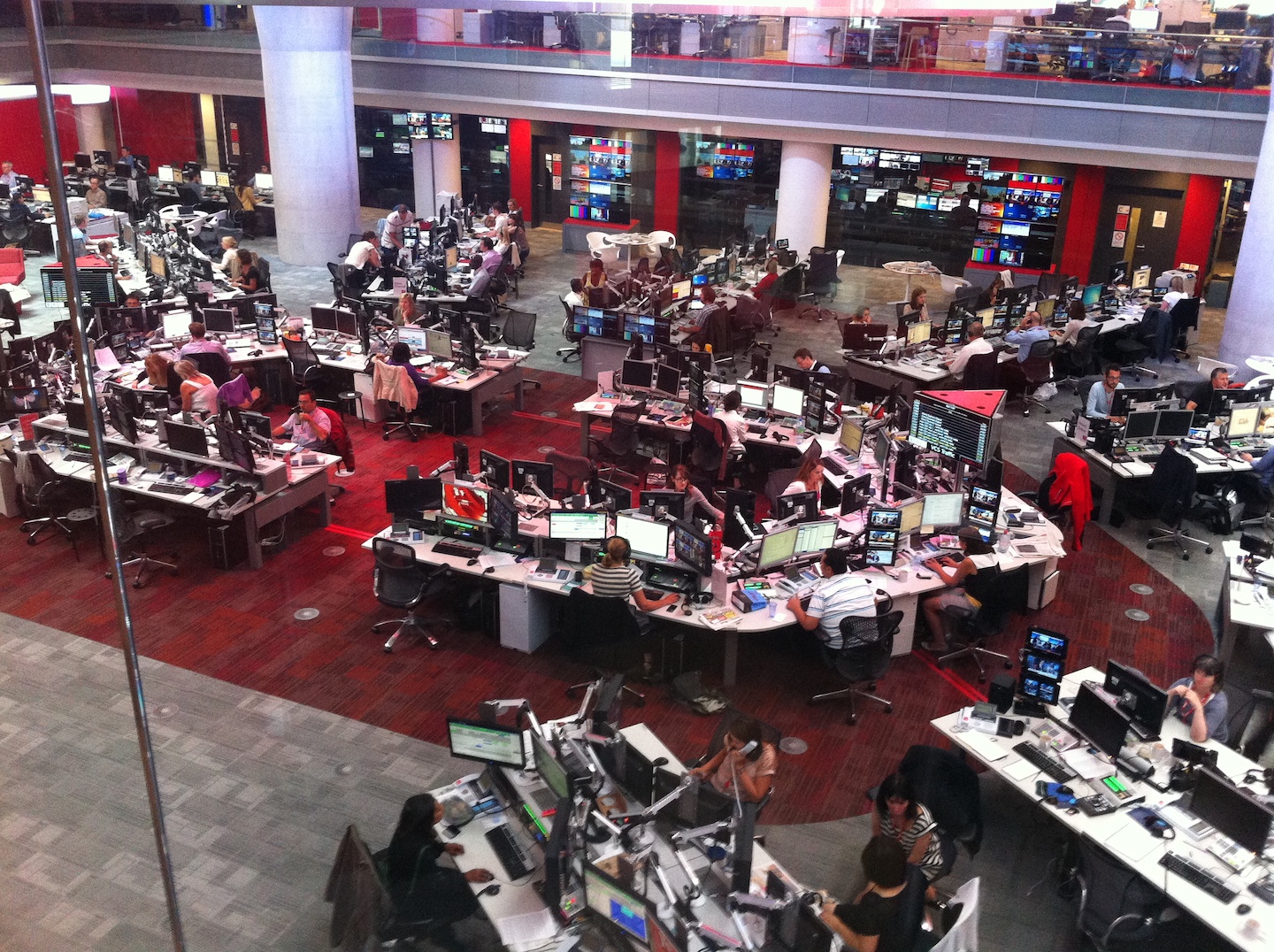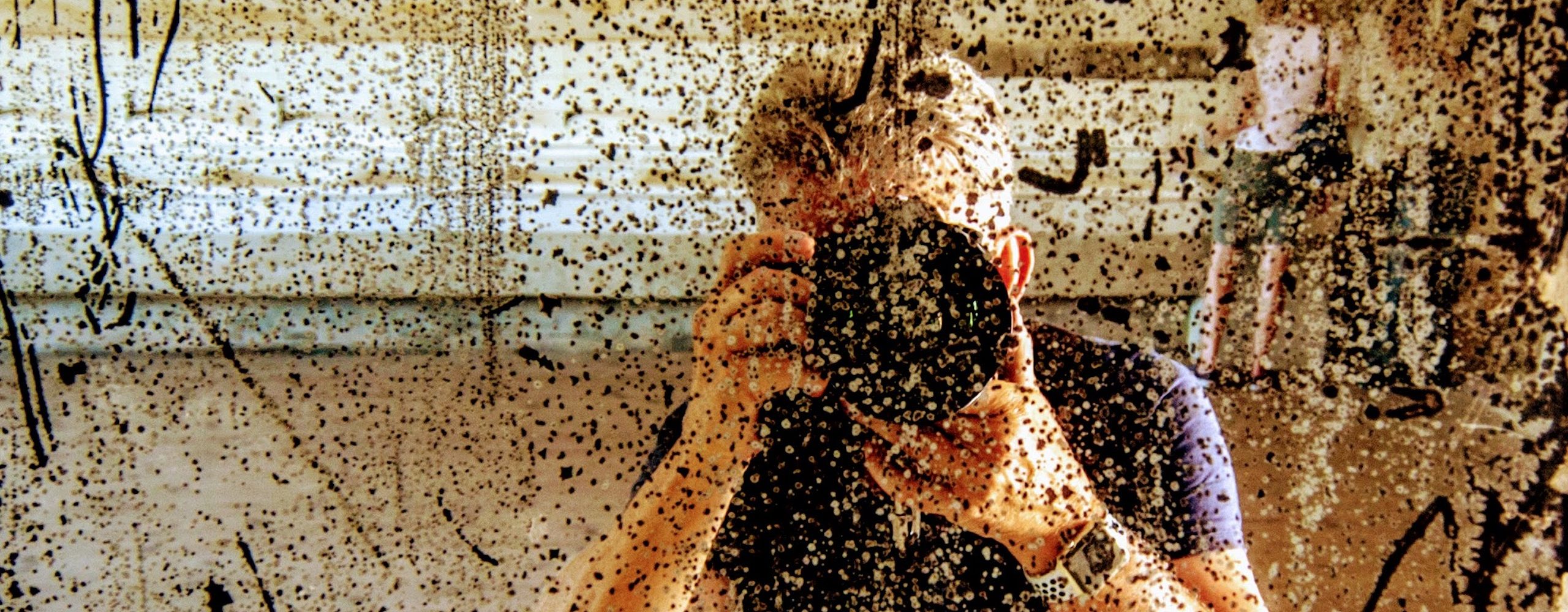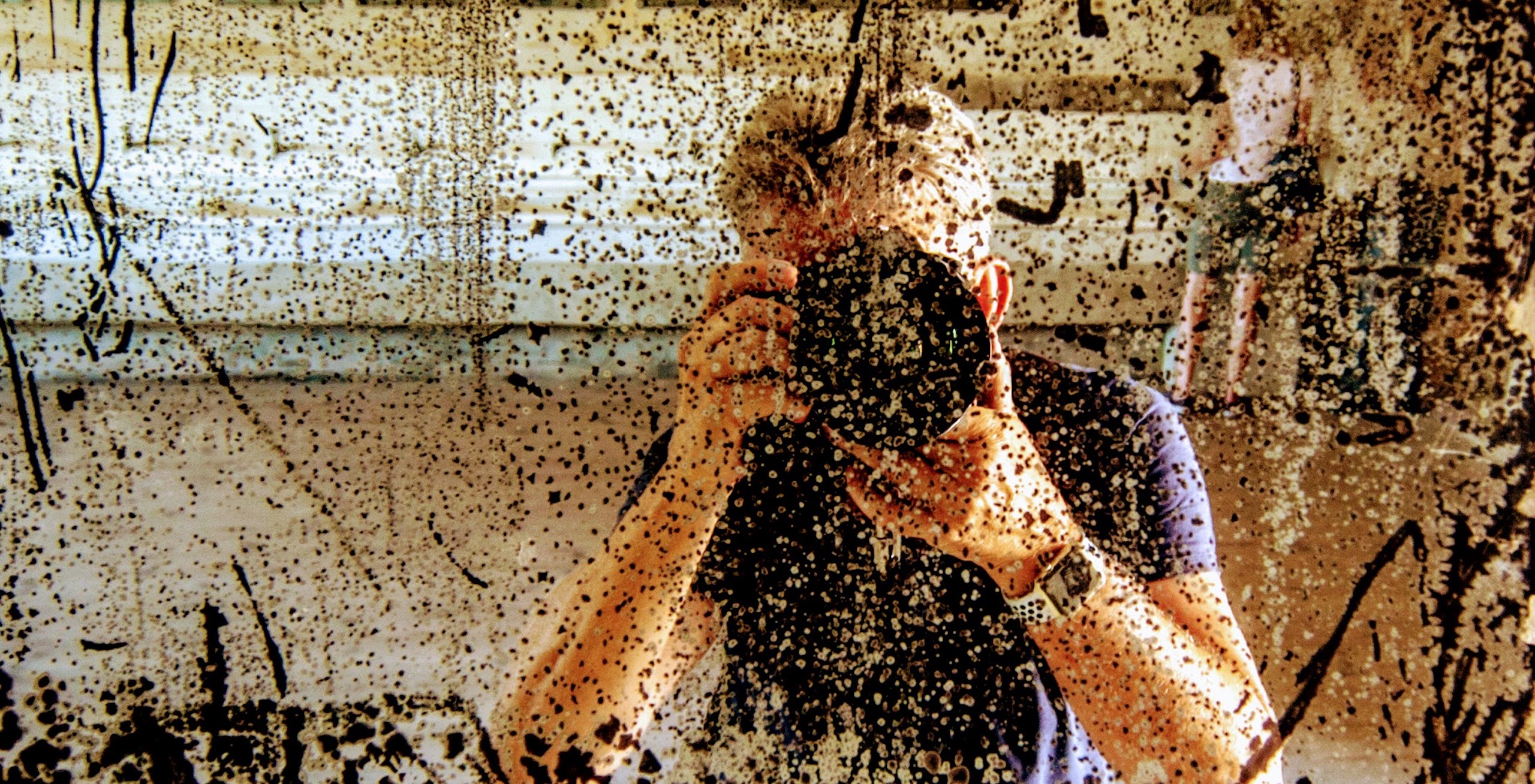Through CyberJournalist.Net: BBC News has reorganized its news division into a “multimedia newsroom” that combines radio, TV and online.
Peter Horrocks, the head of the new integrated news operation, tells all about it on the BBC Blogs:
As a consumer of BBC News on the web, do you expect it to cover the same stories as BBC News on TV and radio? I ask, because today is a very big day for BBC News which has now been re-organised in a fully multimedia fashion. As the head of the new multimedia newsroom that is responsible for our core output on web, TV and radio, I want to know about our audiences’ preferences in the world of multi-platform news.
I hope you agree, if you use our services on a number of platforms, that the BBC has a generally strong reputation in all media. But up until today the editorial decisions have been taken separately in three different departments – Radio News, News Interactive and TV News. Now those proud departments are no more. Instead we have a new system that allows the great strengths of each of our editorial areas to create an even stronger editorial proposition. We have re-organised into two main departments responsible for our audience-facing services:
• The multimedia newsroom comprises the BBC News website, the radio summaries and bulletins (except for Radio 1), BBC World Service news, BBC News 24, BBC World, BBC Breakfast and the bulletins on BBC One at 1, 6 and 10, among others.
• The multimedia programmes departments contains Five Live, the Today programme, World at One, Newsbeat, Newshour, Newsnight, Panorama, the Andrew Marr Show, Hardtalk and a wide range of other diverse programmes.
This new structure will help us to be more efficient and so save money to invest in improvements to BBC News. We will be putting more into on-demand news – for instance developing content for new platforms such as mobile and IPTV; increasing personalisation and providing purpose-made audio/video for the web.
The new organisation also allows for our journalism to be used more dynamically across our three main existing platforms – web, radio and TV. But I’d like to know how far we should go with this. So for web users such as you I’d like to know if you mainly look to BBC News for an in-depth approach on the day’s most significant stories, or do you value more diversity in the range of subjects we cover?
If we drive our stories more across platforms you will see greater consistency within BBC News – with similar editorial judgments being made across different services. We could concentrate resources on developing the most significant and original stories in greater depth. However the downside could be a narrowing of the range of stories we cover, with less coverage that is distinctive and tailored for each medium.
Of course, I’m painting a somewhat polarised view of the strategic choices available to us. In reality we will choose a balance between these two extremes. But it would be helpful to know your broad preference– should we move in a more coherent or a more diversified direction in our core news?
For thousands of journalists in BBC News, today is the start of one of the biggest changes we have ever been through. Many of the people who bring you the news are uncertain of their own futures, but I know that all of us are determined to improve further the service we bring to you. BBC News wants to be the most successful multimedia news operation in the world – competing with and excelling against the best newspapers, broadcasters and news aggregators on the globe. Your comments will give us some indications to help us do that.
BBC News into a multimedia newsroom


